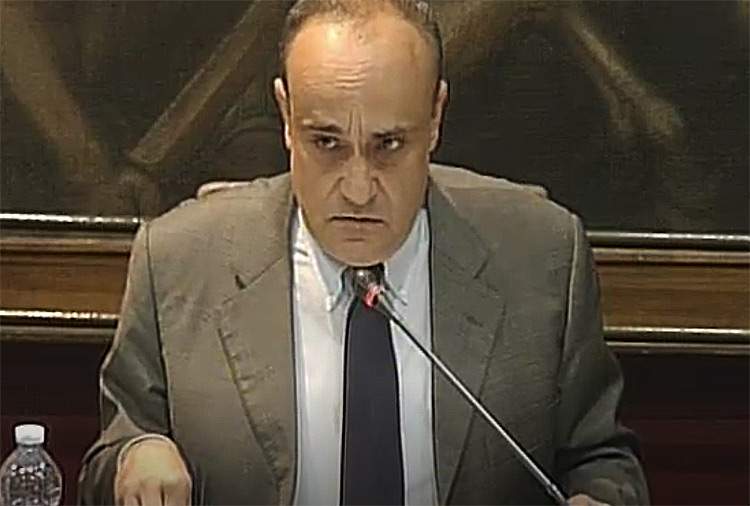A 2,000-post competition for the Ministry of Cultural Heritage: this is what Minister Bonisoli would like to do to make up for the staffing shortages that now characterize MiBAC. He proposed it this morning during his speech at a hearing before the Culture Committees of the House and Senate meeting in joint session. The minister first offered an analysis of the current situation: “It is not that the ministry lacks staff: we are talking about a total staff of more than 16,000 people, so they are not few. But I would remind you, though, that the staffing plan of the ministry is 19,050, and we are quite far away, we are thousands of positions away from reaching this target. I will also give you a couple of figures, because I think it is important to share them. In the next three years, this included, we will have 3,437 people retiring, under current retirement rules. Badly counted that’s about 20 percent of the officers, of the employees in the ministry. The average age in the ministry is 54.66. Keep in mind that the average age of the Italian civil service, which itself is already an old civil service compared to other civil services in other countries, is 48: so this is an old and undersized ministry.”
In response to these emergencies, emergency solutions have been adopted in the past: “until now we have used the civil service to make up for some staffing deficits, we use in a major way Ales, which is the in-house company of the ministry to provide personnel and to keep the Uffizi and whatnot open, and this in my opinion is something that should make us think. In my opinion this is the problem of asking ourselves questions and figuring out if a structural solution can be found. Civil service, other forms of volunteering, and in-house companies, in my opinion, are solutions that have to find their reason for being in a temporariness. The moment this temporariness is not there, and those who start working in a certain way expect to work for 20 years, then this is something that does not work.”
Hence, the idea of a big competition: “I would like to launch a competition, and in my opinion we need at least 2,000 positions, in 2019. Possibly with a larger number of eligible so that we then have a reservoir to work on, but also just to counterbalance the pensions. I prefer to do one of 2,000 in 2019 and one maybe of the same or even larger size a couple of years later, to avoid another syndrome I have seen in ministries, and that is the massive entry, in a single year, of a large number of people (it happened for example, in this ministry, I think in 1984, when 6.000 people in one year), because you create a plug, a generational block, which is a bit of a distortion of what should be good organizational processes.”
For other positions, the Ministry of Education, University and Research’s rankings could be used instead, through mobility between public administrations: “in some ministries we have redundancies in functions or profiles that we are interested in, for example I point you to the MIUR, which in some regions has redundancies in the rankings for teaching graduates, who perhaps are extremely motivated and passionate about the subjects we deal with (libraries, archives, art history, archaeology, and also law because in the superintendencies we need someone to make the calls). If I can take a few hundred people who are living on substitute teaching or living on a big rate of precariousness because the rankings are blocked in fact, and I can give them, on a voluntary basis (no transfer, no command), whoever they want, the opportunity to come and work for us, especially in some areas, I think it’s a timely thing. We will have to work together with our colleagues in MIUR, we will build a table, we will do a punctual thing, because here we are talking about solutions that do not work if there is a transfer, so we are talking about solutions within the same region, or ideally even in the same place. Maybe it’s not going to be big numbers, certainly it’s not a solution to the main problem of the staffing plan that I was talking about earlier, but I think it can be something interesting to explore, and at least to implement, if not in the numbers that I have in mind, at least partially. It’s an opportunity available, I think it’s worth seizing.”
Finally, some thoughts on school-to-work alternation: “If we manage to find a protected form, a form where there is a minimum of specialty in doing school-to-work alternation in this area (we are talking about 17-18 year olds, so very young people), the fact of giving a recognition, maybe in public competition, I think this could be an incentive to attract to the themes of school-to-work alternation boys and girls who naturally have a propensity to deal with issues such as culture.”
Pictured: Alberto Bonisoli during his speech.
 |
| Bonisoli, MiBAC: for 2019 I would like to launch a 2,000-seat competition |
Warning: the translation into English of the original Italian article was created using automatic tools. We undertake to review all articles, but we do not guarantee the total absence of inaccuracies in the translation due to the program. You can find the original by clicking on the ITA button. If you find any mistake,please contact us.